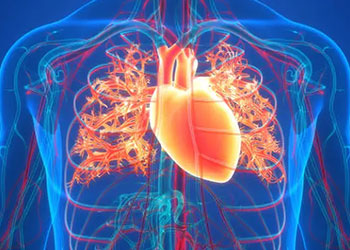-
Coronary artery disease (blocked heart vessels)
-
Heart attacks (myocardial infarction)
-
Arrhythmias (irregular heartbeat)
-
Heart failure (weakened heart muscle)
-
Stroke and transient ischemic attacks (mini-strokes)
-
Hypertension (high blood pressure)
-
Peripheral artery disease (narrowed arteries in limbs)
These conditions require prompt medical attention and continuous management to prevent complications.
Common Symptoms and Causes:
Symptoms may vary based on the type of cardiovascular disease, but commonly include:
-
Chest pain or pressure
-
Shortness of breath
-
Palpitations or irregular heartbeat
-
Fatigue or dizziness
-
Swelling in the legs or ankles
-
Numbness or weakness in limbs (in stroke)
Common causes and risk factors:
-
High blood pressure and high cholesterol
-
Smoking and excessive alcohol use
-
Sedentary lifestyle and obesity
-
Diabetes and metabolic syndrome
-
Family history of heart disease
-
Stress and poor diet
Treatment & Management:
Dr. Varun Deodhar uses a personalized, evidence-based approach to treat and manage cardiovascular conditions. Treatments include:
Medical Management:
-
Blood pressure, cholesterol, and blood sugar control
-
Anti-platelets and anticoagulants (to prevent clots)
-
Medications for heart rhythm control or heart failure
Emergency Interventions:
-
Immediate response for heart attack, stroke, or cardiac arrest
-
Coordination with cardiology teams for advanced interventions if needed
Monitoring & Diagnostic Services:
-
ECG, 2D Echo, blood tests, and risk screening
-
Continuous monitoring of vitals for high-risk patients
Rehabilitation & Recovery:
-
Post-cardiac event rehabilitation plans
-
Physical activity guidance, stress management, and counseling
Patient Education:
-
Teaching patients to recognize warning signs early
-
Promoting self-monitoring of blood pressure and lifestyle habits
Prevention & Lifestyle Care:
Preventing cardiovascular diseases is often achievable with the right guidance and lifestyle changes. Dr. Deodhar emphasizes:
-
Healthy eating habits with reduced salt, sugar, and saturated fats
-
Regular physical activity (at least 30 mins/day)
-
Stress management techniques
-
Smoking and alcohol cessation support
-
Regular health check-ups and screenings
-
Medication compliance and follow-up care

